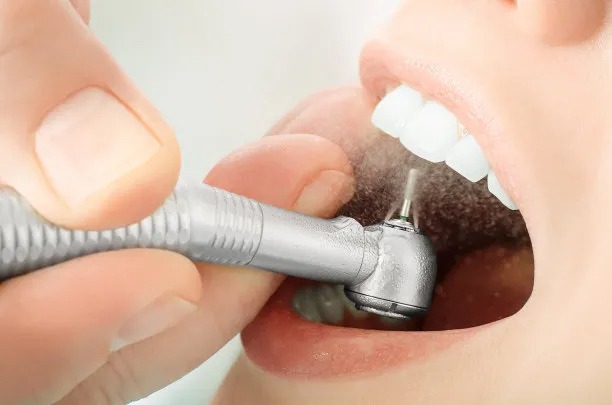Summary: Dental fillings are a common dental procedure aimed at restoring teeth affected by decay or damage. However, before undergoing this procedure, individuals should be aware of several important precautions to ensure optimal oral health. This article outlines four key aspects to consider: understanding the type of filling materials used, the importance of choosing a qualified dentist, preparing for the procedure, and post-filling care. By focusing on these critical areas, patients can enhance their overall dental experience and promote lasting oral health and wellness.
1. Understanding the Types of Filling Materials

Before getting a dental filling, it is crucial to understand the types of materials used in the procedure. Common materials include amalgam, composite resin, porcelain, and glass ionomer. Each material has its unique properties, benefits, and drawbacks. For instance, amalgam fillings are durable and suitable for large cavities but may not be aesthetically pleasing.
Composite resin fillings, on the other hand, are tooth-colored and blend well with natural teeth, making them an excellent choice for visible areas. However, they may not be as long-lasting as amalgam. Knowing these differences allows patients to make informed choices based on their specific dental needs.
Additionally, exploring the potential chemical sensitivities or allergies to specific dental materials is essential. Consulting with a dentist about any concerns ensures that the chosen filling material will not cause adverse reactions, promoting a smoother treatment experience.
2. Choosing a Qualified and Experienced Dentist
Selecting the right dentist is a pivotal factor in the success of dental filling procedures. It is vital to choose a qualified professional with relevant experience in performing fillings. Checking their credentials and reading patient reviews can provide insight into their qualifications and treatment approach.
A dentist who possesses advanced training in restorative treatments will be better equipped to handle complications that may arise during the filling process. They will also be more knowledgeable about current dental technologies and materials, ensuring patients receive the best possible care.
Moreover, a good dentist will take the time to discuss the patients dental history, explain the procedure in detail, and address any concerns. An open line of communication between the patient and dentist cultivates trust and reassurance, making the filling experience more comfortable.
3. Preparing for the Dental Filling Procedure
Preparation for the dental filling procedure is another critical aspect to consider. Patients should arrive at their appointment with a clear understanding of what to expect. It may be beneficial to compile a list of any medications currently taken and share this information with the dentist to avoid potential interactions with anesthetics or other procedures.
Additionally, its advisable to discuss any anxiety or fear regarding dental work with the dentist. They can provide options for sedation or other relaxation techniques to alleviate discomfort during the procedure. This proactive approach helps patients feel more at ease during the treatment.
Hydration is also essential prior to the visit. Drinking plenty of water can help with optimal oral conditions, such as saliva production, which is crucial for a smoother filling process. Having a calm mental state and ensuring physical well-being can significantly contribute to the overall experience.
4. Post-Filling Care and Monitoring
After the dental filling is complete, post-care is vital for maintaining oral health. Patients should follow their dentist’s specific instructions regarding oral hygiene practices, including how soon they can brush or floss after the procedure. Gentle oral care is recommended to avoid disturbing the filling.
Monitoring for any discomfort or unusual sensations in the filled tooth in the days following the procedure is also crucial. If sensitivity, pain, or a feeling of unevenness occurs, contacting the dentist promptly is essential to address potential complications early.
Regular dental check-ups post-filling are advisable to ensure the integrity of the filling material and the overall health of the surrounding tooth structure. These appointments allow for professional monitoring and necessary adjustments or repairs to be made before serious issues develop.
Summary:
In summary, undergoing a dental filling procedure requires careful consideration of several factors. From understanding the types of materials available to selecting an experienced dentist, proper preparation can significantly impact the outcome. Following the procedure, diligent post-care ensures the longevity of the filling and the health of the affected tooth.
This article is compiled by Vickong Dental and the content is for reference only.
Vickong Dental
Vickong Dental is a large medical group established in Hong Kong in 2008 by professors from well-known medical universities in Guangdong and Hong Kong, as well as medical doctors from key national '985' universities (including Master's supervisors and senior professors). The chain of branches brings together expert dentists with PhDs and Master's degrees from Hong Kong and Mainland China, committed to providing high-quality dental treatment.
"Vickong Dental Practices the University Motto of 'Healing and Serving Society,' with a Stable Operation for Sixteen Years. It Has Been honored with Hong Kong Enterprise Leaders's Choice,' and is a Global Trusted Implant Center for the Nobel Implant System. Recommended by Hong Kong Metro Broadcast and Guangdong Television, it Serves Customers from Over Thirty Countries and Regions, Gaining the Trust and Favor of Citizens from the Guangdong-Hong Kong-Macau Greater Bay Area and Surrounding Cities.

Thousands of customers' unanimous praise
The most recognized and highly recommended dental service by customers in the Guangdong-Hong Kong-Macau Greater Bay Area
We Ensure You Receive Detailed Care and Attention Here
Hong Kong standards, Shenzhen prices, Your Trusted English-speaking dentists

Vickong Dental Medical-Grade Instrument Disinfection Process
Vickong Dental Medical-Grade Instrument Disinfection Process

Vickong Dental Chain: A Warm and Comfortable Environment for Treatment






Appointment Hours

Q&A
Why choose Vickong Dental?
Vickong Dental practices the university motto 「Medicine to Benefit Society」, with each branch bringing together highly qualified dentists with doctoral and master’s degrees from Hong Kong and the Mainland, and has maintained seventeen years of steady operation。Recipient of 「2024 Hong Kong Enterprise Leaders Brand」, 「2025 Hong Kong Enterprise Leaders Brand」, a Nobel Biocare Global Trusted Implant Center, and a brand recommended by Metro Radio Hong Kong and Guangdong TV。
To date, we have served customers from more than thirty countries and regions,earning exceptionally high word-of-mouth recognition and trusted recommendations from residents across the Guangdong-Hong Kong-Macao Greater Bay Area and surrounding cities
We have eight major branches in Zhuhai、Shenzhen,and a consultation and service assurance center in Hong Kong,so you can book a free consultation at any time for any questions,which is very reassuring.
If I do not accept the quotation after the CT scan, will I be charged??
No! As long as the actual treatment has not started, you will not be charged any fees.
Will there be any additional charges during the treatment process?
No, there won’t be any additional charges. Before treatment begins, we will clearly explain the treatment plan and its corresponding fees. Only after the patient agrees and signs the consent form will we proceed with the dental service.
Can I pay in Hong Kong dollars?
Yes. Vickong Dental accepts payment in Hong Kong dollars. The amount will be converted based on the exchange rate of the day, and the applicable rate will be clearly communicated to you in advance.
Can I reschedule my appointment at any time?
Yes. Please contact us via **WeChat** or **WhatsApp** as early as possible, providing your original appointment time and details, along with your preferred new date and time slot for rescheduling.













